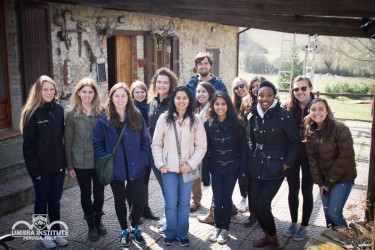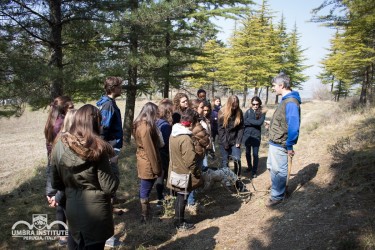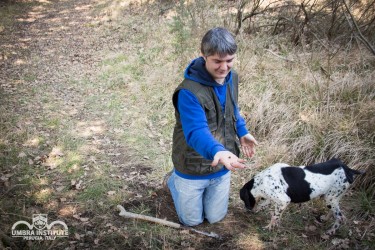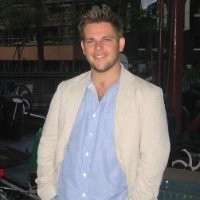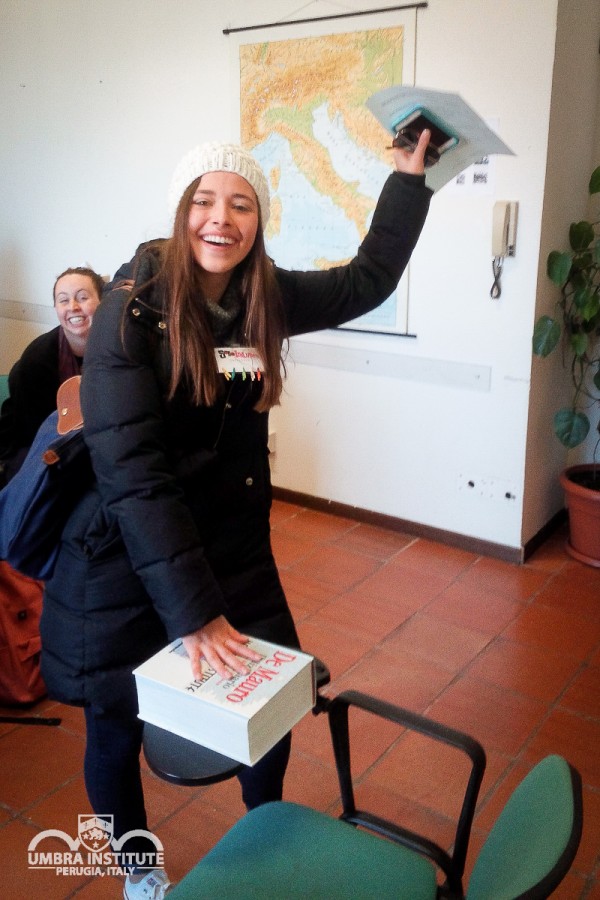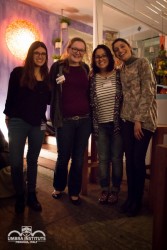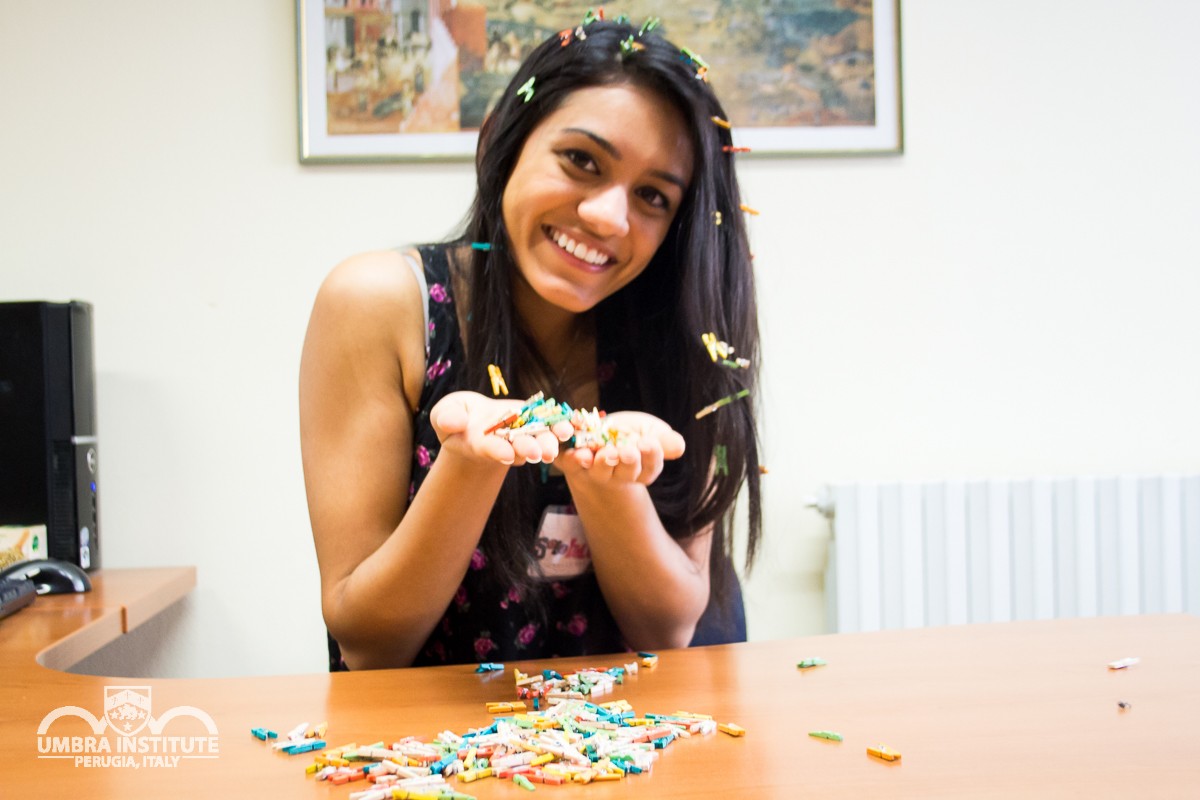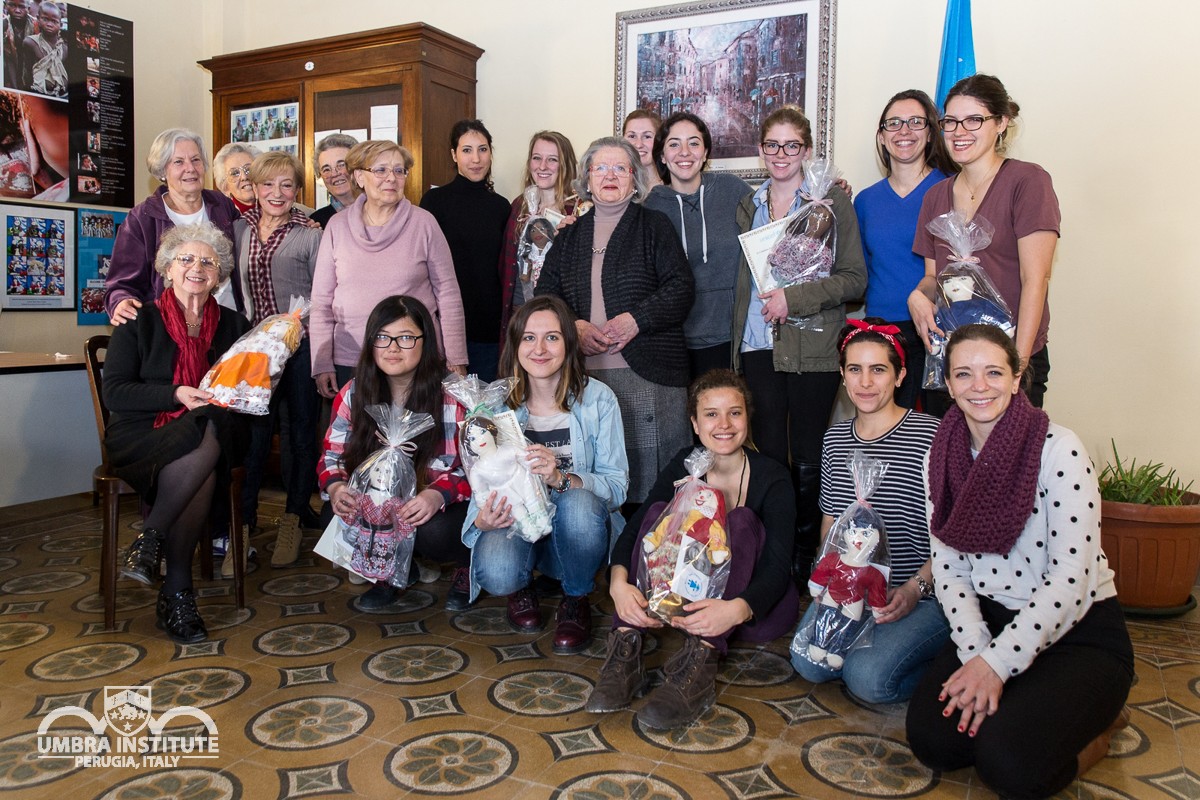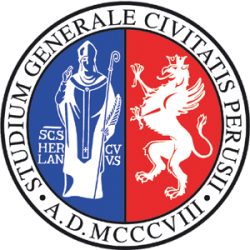The Umbra Institute is radio famous! Through a recent partnership with Radiophonica, the official radio station of the University of Perugia, students in the sustainability course are working in groups to create individual podcast episodes aimed at bringing awareness to sustainable food practices in Perugia. Through interactions with members of the community devoted to this issue, students are documenting the many cultural realities of Perugia from a food perspective. Each episode features an overarching theme – the first two episodes discussed urban agriculture and farmers markets respectively, and the upcoming third episode will focus on sustainable meat.
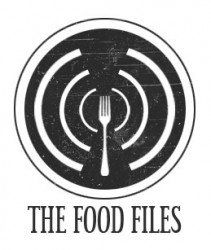
Each episode contains student-conducted research and interviews with key players in alternative food. A “from scratch” portion recounts students’ experiences cooking traditional Umbrian recipes at home in their apartments (with local ingredients, of course.) Additionally, a restaurant review section highlights an establishment in Perugia on the cutting-edge of sustainable food practices.
For a small city, Perugia is packed with opportunities for students to explore the culture of food in Italy. Podcasts are in English, allowing students to shed light on sustainability in a way that reaches an international audience. Where can you find this program? Check out the link to the second episode here: http://www.radiophonica.com/podcast/9256. Stay tuned for the third episode, coming soon!


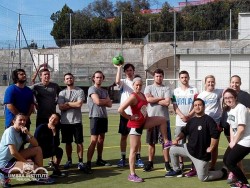
 Intercultural Marketing course provides students with the theory behind business and marketing practices in international companies. This semester, Umbra is continuing its collaboration with Pashmere, a family-run luxury cashmere company.
Intercultural Marketing course provides students with the theory behind business and marketing practices in international companies. This semester, Umbra is continuing its collaboration with Pashmere, a family-run luxury cashmere company.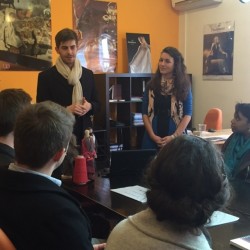 work to expand Pashmere’s presence over multiple social media platforms; this initiative stems from last semester’s intercultural marketing student projects. Over the next several weeks, current students will work in groups to present Pashmere representatives with their own suggestions for the company. Presentation topics will include social media, product development, and the Asian market. This partnership gives students a real-world example of the efforts and challenges behind running an internationally-minded family business.
work to expand Pashmere’s presence over multiple social media platforms; this initiative stems from last semester’s intercultural marketing student projects. Over the next several weeks, current students will work in groups to present Pashmere representatives with their own suggestions for the company. Presentation topics will include social media, product development, and the Asian market. This partnership gives students a real-world example of the efforts and challenges behind running an internationally-minded family business.